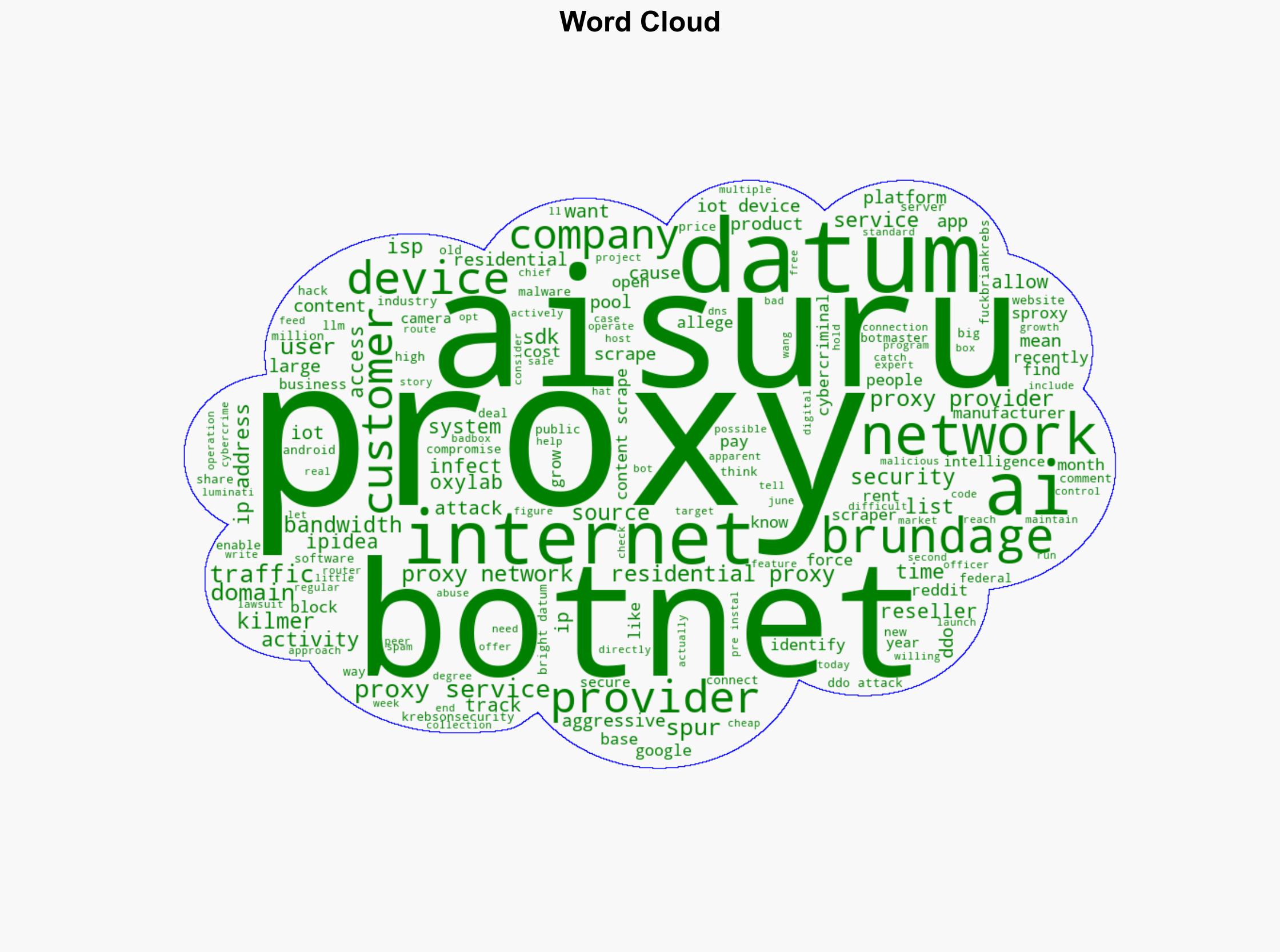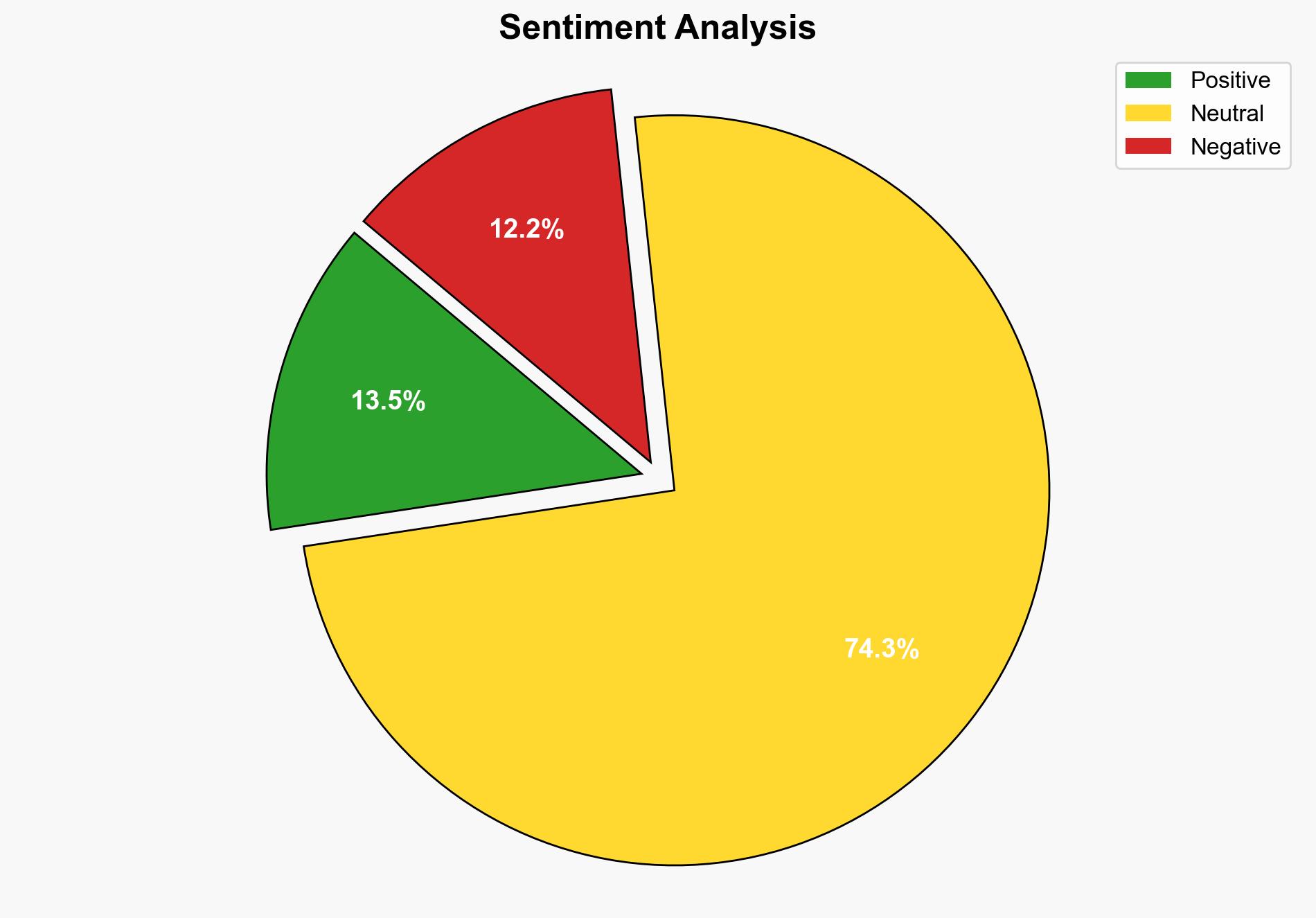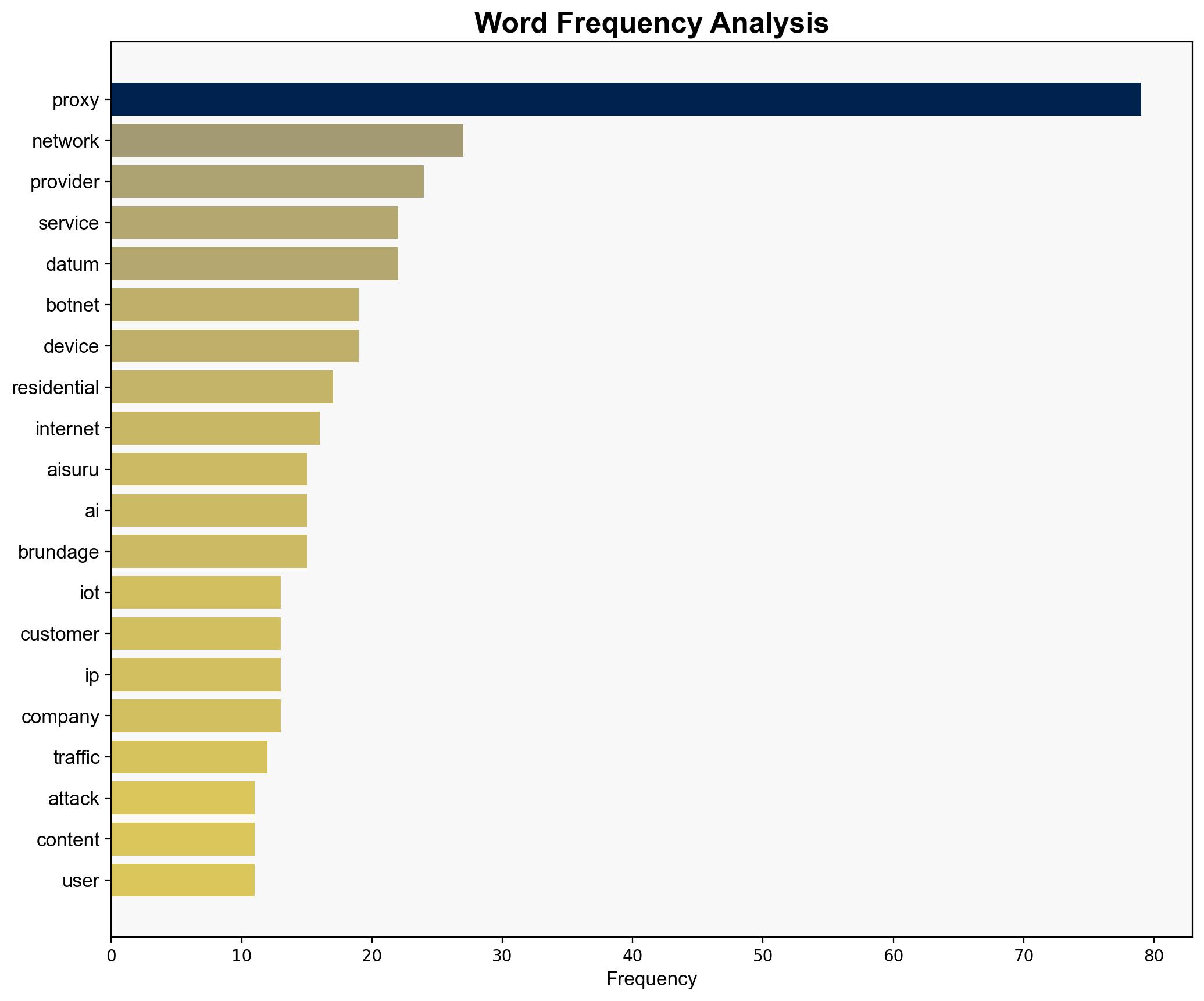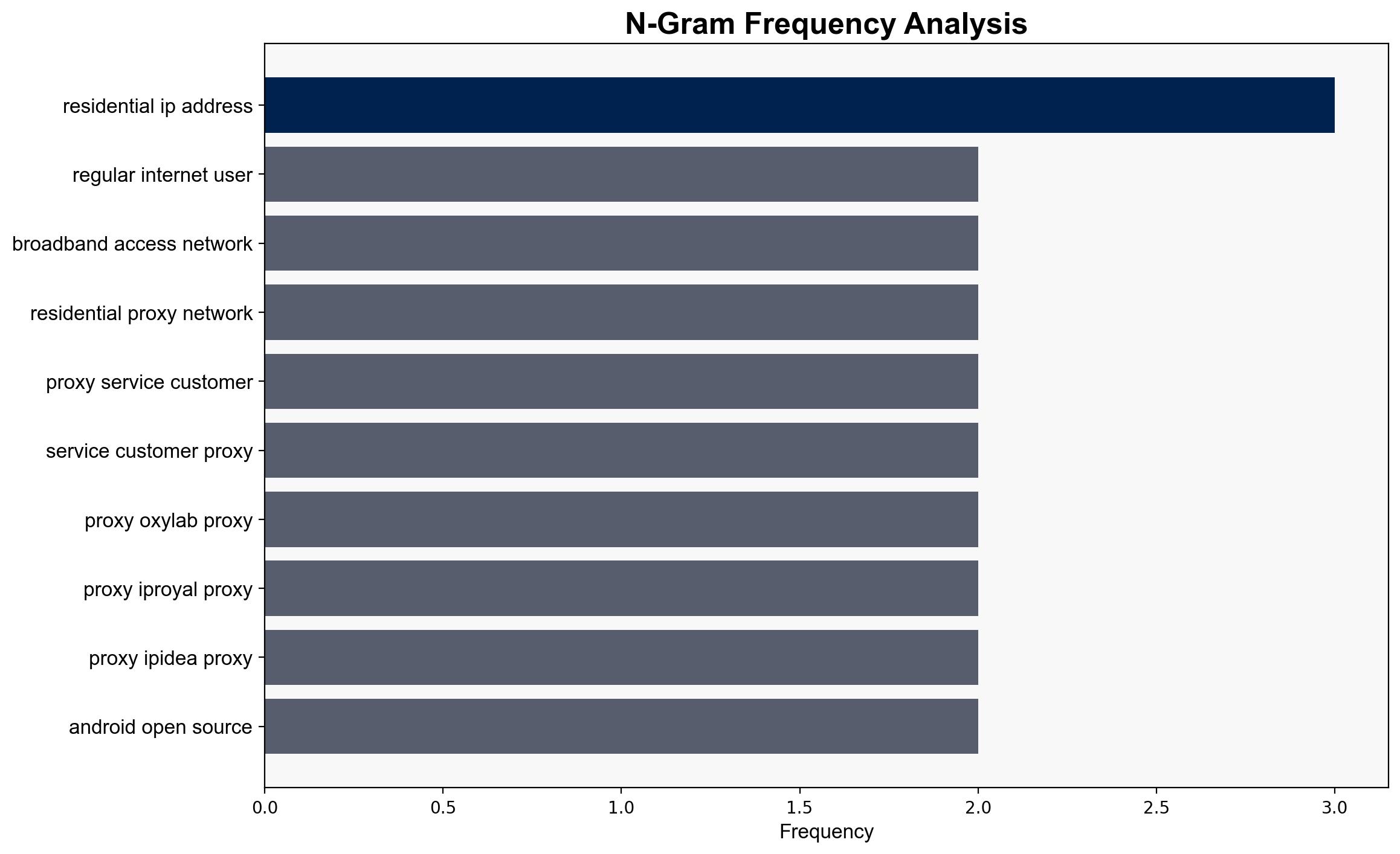Aisuru Botnet Shifts from DDoS to Residential Proxies – Krebs on Security
Published on: 2025-10-29
Intelligence Report: Aisuru Botnet Shifts from DDoS to Residential Proxies – Krebs on Security
1. BLUF (Bottom Line Up Front)
The Aisuru botnet’s transition from DDoS attacks to leveraging residential proxies represents a strategic pivot towards more sustainable and less detectable cybercriminal activities. The most supported hypothesis is that this shift aims to facilitate large-scale data harvesting and anonymity for cybercriminals, posing significant risks to cybersecurity and privacy. Confidence Level: High. Recommended action includes enhancing monitoring of residential proxy networks and collaborating internationally to disrupt these operations.
2. Competing Hypotheses
Hypothesis 1: Aisuru’s shift to residential proxies is primarily driven by economic incentives, aiming to create a sustainable revenue stream by renting out compromised devices for anonymity services.
Hypothesis 2: The transition is strategically designed to support large-scale data harvesting efforts tied to AI projects, using residential proxies to evade detection and enhance data collection capabilities.
3. Key Assumptions and Red Flags
Assumptions:
– Hypothesis 1 assumes that economic incentives are the primary driver for cybercriminals.
– Hypothesis 2 assumes a direct link between residential proxy use and AI data harvesting.
Red Flags:
– Lack of direct evidence linking Aisuru’s activities to specific AI projects.
– Potential underestimation of the botnet’s capability to pivot back to DDoS attacks.
– Over-reliance on informal ISP block lists without formal international cooperation.
4. Implications and Strategic Risks
The shift to residential proxies could lead to increased difficulty in tracing cybercriminal activities, complicating law enforcement efforts. This could embolden other botnets to adopt similar strategies, escalating the threat landscape. The economic impact on ISPs and potential privacy violations for individuals unwittingly involved in these networks are significant concerns. Geopolitically, this may strain international relations if not addressed cooperatively.
5. Recommendations and Outlook
- Enhance international collaboration to create a unified response to residential proxy abuse.
- Develop advanced monitoring tools to detect anomalous proxy activities.
- Scenario Projections:
- Best Case: Successful disruption of Aisuru’s operations through international cooperation.
- Worst Case: Proliferation of similar tactics across multiple botnets, overwhelming current cybersecurity defenses.
- Most Likely: Gradual adaptation by cybersecurity entities, with ongoing challenges in tracing and mitigating proxy-based threats.
6. Key Individuals and Entities
– Riley Kilmer, founder of Spur, noted for tracking proxy networks.
– Roland Dobbin, principal engineer at Netscout, provided insights into the operational impact of Aisuru’s activities.
7. Thematic Tags
national security threats, cybersecurity, counter-terrorism, regional focus





